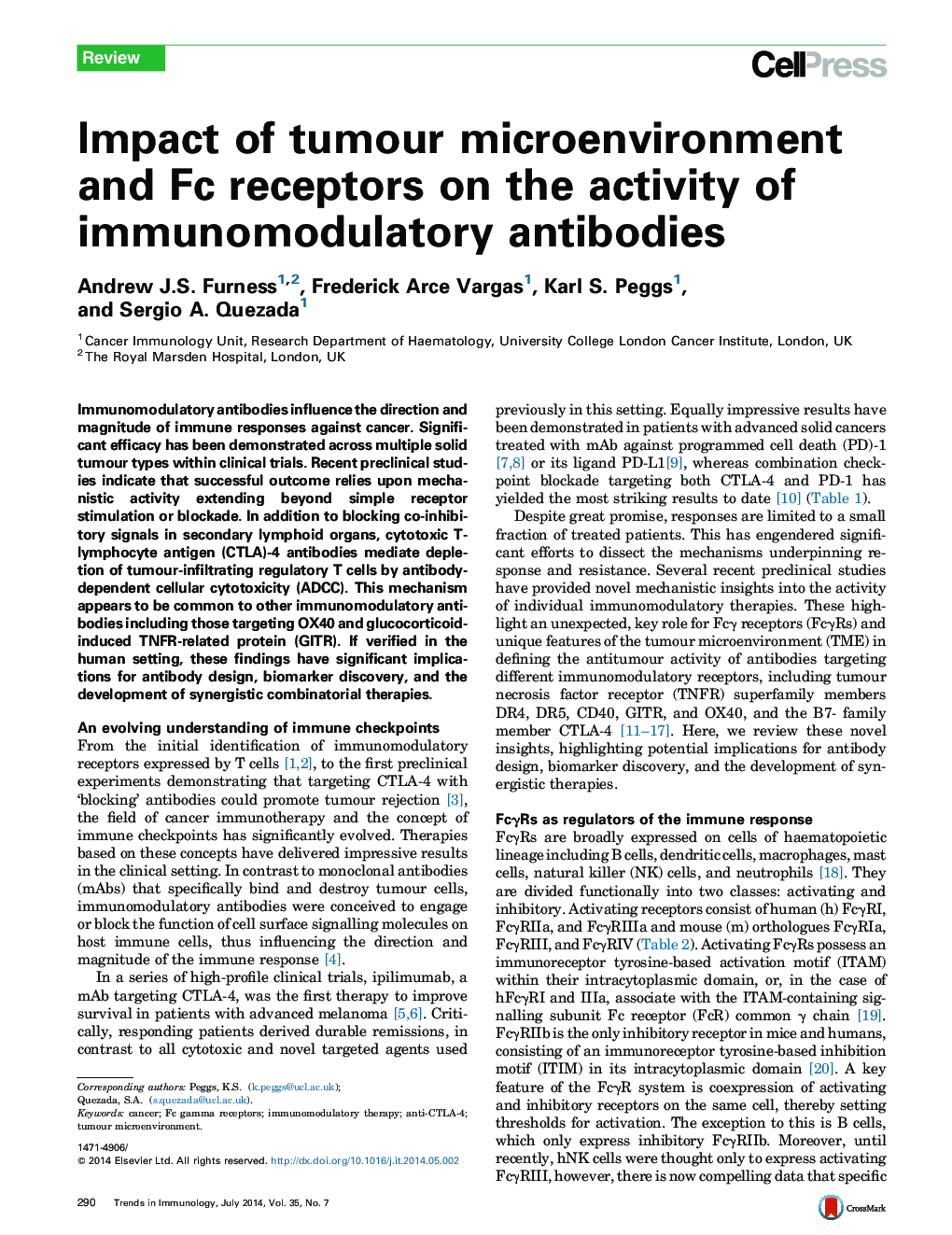| کد مقاله | کد نشریه | سال انتشار | مقاله انگلیسی | نسخه تمام متن |
|---|---|---|---|---|
| 4359899 | 1301120 | 2014 | 9 صفحه PDF | دانلود رایگان |

• FcγRs play a key role in the activity of immunomodulatory mAbs in mouse models.
• αCTLA-4 expands Teff cells while selectively depleting intratumoural Treg cells.
• CTLA-4 density, mAb isotype, and FcγR-expressing myeloid cells dictate outcome.
• This mechanism appears common to the activity of other immune modulatory mAb.
• Translational studies in a human population are paramount.
Immunomodulatory antibodies influence the direction and magnitude of immune responses against cancer. Significant efficacy has been demonstrated across multiple solid tumour types within clinical trials. Recent preclinical studies indicate that successful outcome relies upon mechanistic activity extending beyond simple receptor stimulation or blockade. In addition to blocking co-inhibitory signals in secondary lymphoid organs, cytotoxic T-lymphocyte antigen (CTLA)-4 antibodies mediate depletion of tumour-infiltrating regulatory T cells by antibody-dependent cellular cytotoxicity (ADCC). This mechanism appears to be common to other immunomodulatory antibodies including those targeting OX40 and glucocorticoid-induced TNFR-related protein (GITR). If verified in the human setting, these findings have significant implications for antibody design, biomarker discovery, and the development of synergistic combinatorial therapies.
Journal: - Volume 35, Issue 7, July 2014, Pages 290–298